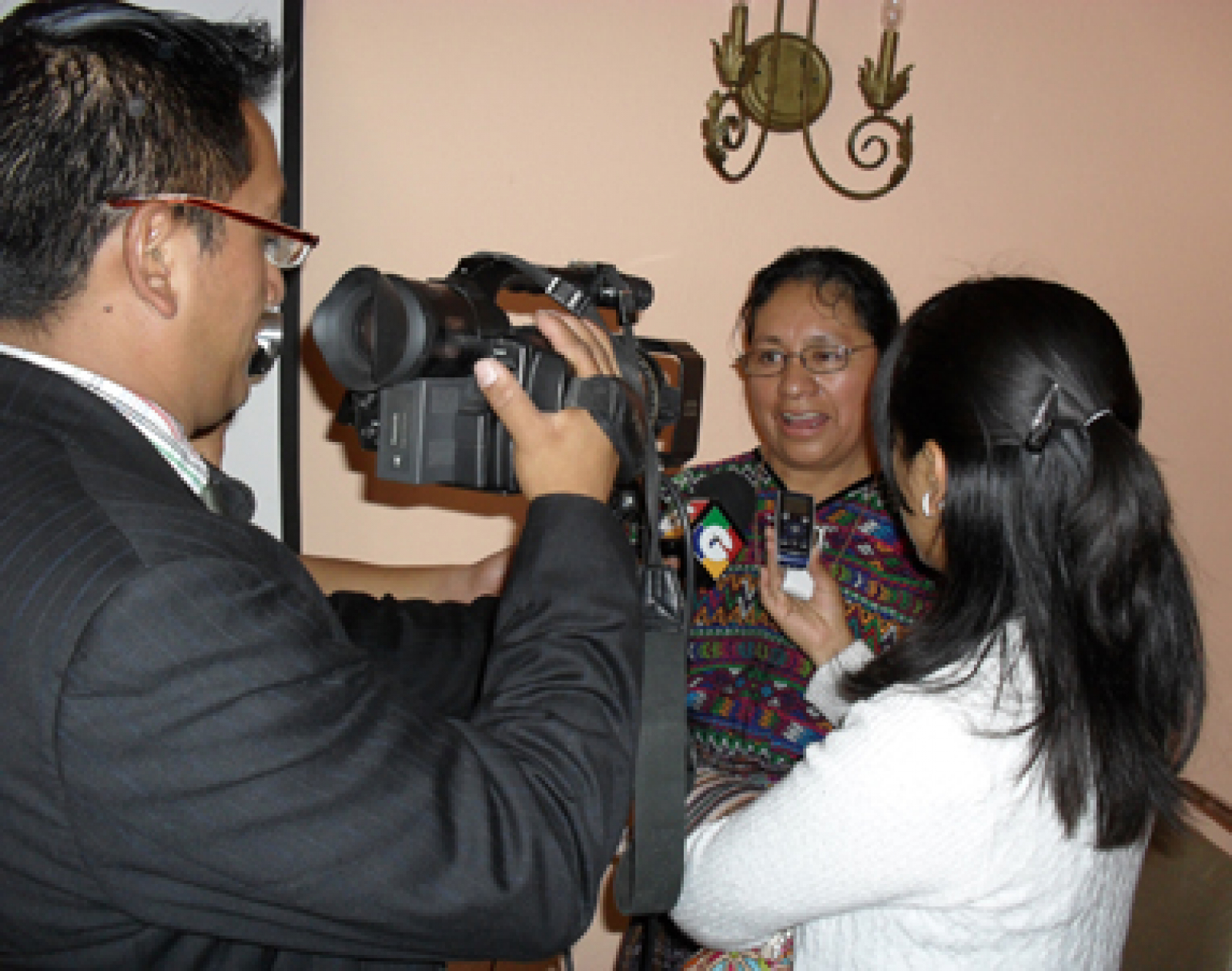
SHARE
Despite their 20 percent share of the population, Mayan women in Guatemala have limited political and economic power. They have the country’s highest rates of poverty and illiteracy, and, according to an NDI-supported study, are far less likely to vote than any other sector of the population.
Despite their 20 percent share of the population, Mayan women in Guatemala have limited political and economic power. They have the country’s highest rates of poverty and illiteracy, and, according to an NDI-supported study, are far less likely to vote than any other sector of the population. Only four of 158 deputies in Congress are Mayan women and only one of 333 mayors. And despite their interest in increased political clout, few of the women have tested campaigning and political skills, adding to the challenges to being included on candidate lists in the most recent election in 2007.
To help overcome these challenges, NDI has published a series of training guides to help Mayan women acquire the concrete skills needed to pursue political leadership opportunities. The guides are based on the topics presented during a 2009 academy that NDI organized with the Political Association of Mayan Women (Asociación Política de Mujeres Maya, MOLOJ), the Central American Institute for Political Studies (Instituto Centroamericano para Estudios Políticos, INCEP) and the Kondrad Adenauer Foundation (KAS). One hundred and eleven women participated in the original academy, and the goal is for those women to use the manuals to teach other women to build the skills needed to lead political parties, national-level civic groups and local organizations, empowering an ever-widening circle of Mayan women.
Topics of the manuals include multiculturalism, democracy, citizenship, political parties, organizing and leadership. The guides take a practical approach, giving real-life examples and suggesting self-guided activities. The series also includes tips and tools for leading effective training sessions.
In November 2009, at workshops designed to provide them the skills to replicate the guides, the original academy participants discussed how best to use the guides to hold sessions on women’s leadership in their own parties, civic organizations and communities. “The trainings increased my knowledge of political participation and advocacy and provided me with the tools to replicate the trainings for women in my community who have not had the opportunity to attend these types of activities,” said one participant from a Mayan women’s civic organization.
To launch the guides and raise awareness about Mayan women’s exclusion from politics, NDI held two events in April – one in the indigenous-majority department of Quetzaltenango and the other in Guatemala City. The events focused on the importance of political training for indigenous women so they could gain leadership roles and advocate for issues of importance to their communities. The guides were also released to the public at the time.
At the events in April, representatives from MOLOJ, the Organization for the Defense of Indigenous Women (Defensoría de la Mujer Indígena, DEMI), and NDI as well as academy graduates discussed why indigenous women should become politically involved, challenges to political participation in Guatemala and steps to increase women’s participation. The representative from the DEMI emphasized the need for greater gender equity among candidates running for office. NDI, in collaboration with MOLOJ, is coordinating internships for 10 academy alumnae with congressional committees, the election commission and the agency that manages the national civil registry and issues citizen identification cards. The purpose of the internships is to provide the women the opportunity to put their skills into practice as they advocate for greater inclusion of indigenous women in Guatemala's political arena.
Pictured above: One of the participants is interviewed after the conference.
Published July 21, 2010


